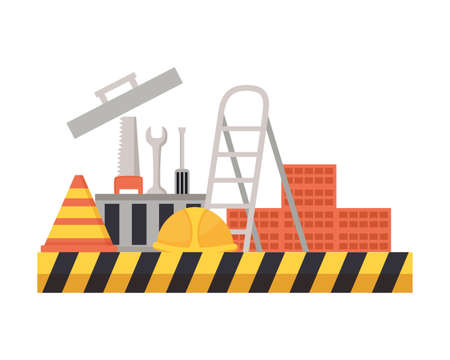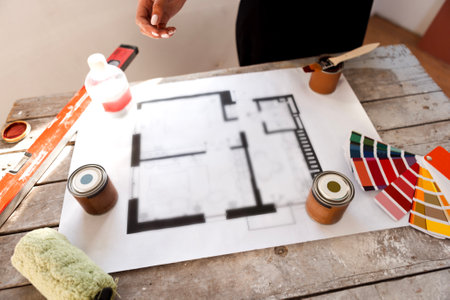Understanding Your Bathroom Renovation Needs
Before you start looking for a bathroom renovation contractor, it’s essential to have a clear understanding of what you want to achieve with your remodel. Assessing your current bathroom is the first step. Take note of what works and what doesn’t—maybe you’re dealing with outdated fixtures, limited storage, or inefficient layouts. Walk through your daily routine and jot down the pain points that make using your bathroom less than ideal.
Next, identify your renovation goals. Are you aiming for a complete overhaul or just a cosmetic update? Do you need more space, better lighting, or improved accessibility? Think about how long you plan to stay in your home and whether your investment will pay off in terms of comfort and resale value. This clarity will help you communicate effectively with potential contractors and ensure they understand your vision.
Lastly, determine your budget before reaching out to professionals. Research average bathroom remodeling costs in your area and factor in both expected expenses and a cushion for unforeseen issues. Be realistic about what you can afford, and prioritize must-have features over nice-to-haves. By having a well-defined scope, clear objectives, and a set budget, you’ll be better prepared to find the right contractor who can bring your dream bathroom to life while staying within your financial limits.
2. Finding and Vetting Local Contractors
Choosing the right bathroom renovation contractor begins with thorough research and vetting. In the United States, homeowners have a variety of resources at their disposal to ensure they find reputable professionals. Below, we outline some of the most effective strategies for identifying trustworthy contractors and ensuring they meet all necessary requirements.
Start with Online Reviews and Ratings
The internet is an invaluable tool when searching for local bathroom renovation contractors. Websites like Yelp, Angi (formerly Angie’s List), Houzz, and Google Reviews allow homeowners to read firsthand accounts from other customers. Pay attention to both the overall rating and specific feedback regarding punctuality, workmanship, communication, and problem-solving skills. Consistency in positive reviews is a strong indicator of reliability.
Ask for Referrals from Trusted Sources
Word-of-mouth recommendations remain one of the most reliable ways to find a contractor you can trust. Ask friends, family members, neighbors, or colleagues if they’ve had good experiences with local bathroom remodelers. Personal referrals often provide insights into work quality and professionalism that online reviews may not capture.
Verify Licenses and Credentials
Proper licensing is essential for any contractor working on your home. Each state has its own regulations, but at a minimum, you should confirm that your chosen contractor holds a valid state or local license for bathroom renovations. Many states also require proof of insurance and bonding, which protects homeowners in case of accidents or unfinished work.
Key Contractor Credentials Checklist
| Credential | Why It Matters |
|---|---|
| State/Local License | Confirms legal eligibility to perform renovations in your area |
| General Liability Insurance | Covers potential property damage during the project |
| Worker’s Compensation Insurance | Protects you from liability if workers are injured onsite |
| Bonding | Provides financial protection if the contractor fails to complete the job |
Check Professional Affiliations
Membership in professional organizations—such as the National Association of the Remodeling Industry (NARI) or the National Kitchen & Bath Association (NKBA)—is another positive sign. These affiliations often require members to adhere to high ethical standards and ongoing education.
Summary Tips:
- Use multiple sources (online reviews, referrals, official websites) to create a shortlist.
- Always confirm licenses and insurance before signing any agreements.
- Avoid contractors who refuse to provide documentation or references.
Taking these steps will help U.S. homeowners feel confident in their decision when hiring a bathroom renovation contractor.

3. Evaluating Contractor Credentials
Before hiring a bathroom renovation contractor, U.S. homeowners should prioritize verifying key credentials to ensure both legal compliance and project quality. Certifications from reputable industry organizations, such as the National Association of the Remodeling Industry (NARI) or the National Kitchen & Bath Association (NKBA), demonstrate that a contractor adheres to established standards and best practices. These certifications often require ongoing education, which means certified professionals stay updated on the latest techniques and safety protocols.
Insurance is another non-negotiable requirement. Always confirm that your contractor carries both liability insurance and workers’ compensation coverage. Liability insurance protects you in case of accidental property damage during the renovation, while workers’ comp covers injuries sustained by workers on your property—shielding you from potential lawsuits or medical bills.
Finally, check for proper state and local licenses. Each state—and sometimes individual cities or counties—has its own licensing requirements for contractors. Licensed contractors have passed background checks and demonstrated knowledge of building codes and regulations. This is essential for ensuring your remodel meets all legal standards, avoids costly fines, and passes inspections when it’s time to sell your home.
Together, these credentials are more than just paperwork—they offer peace of mind by protecting you from financial risk, unqualified labor, and subpar workmanship. By thoroughly evaluating a contractor’s certifications, insurance, and licenses, homeowners safeguard their investment and set the stage for a successful bathroom renovation.
4. Requesting and Comparing Estimates
Once you’ve narrowed down your list of potential bathroom renovation contractors, the next step is to request detailed estimates from each one. It’s important to provide every contractor with the same information regarding your project requirements, preferred materials, and design expectations. This ensures that the bids you receive are directly comparable and that there are no misunderstandings about the scope of work.
Getting Comprehensive Bids
A thorough bid should outline more than just the total cost. Make sure each estimate includes a breakdown of labor, materials, permits, timelines, and any additional fees. Ask for itemized lists to see exactly what is included in the price. If a contractor provides a vague or incomplete quote, don’t hesitate to ask for clarification or request a revised estimate.
Understanding the Scope of Work
The scope of work is crucial; it defines what tasks will be performed, who is responsible for specific elements (such as plumbing or electrical), and how unexpected issues will be handled. Carefully review this section in each estimate so you know exactly what to expect—this helps prevent surprises and sets clear expectations for both parties.
Comparing Quotes: More Than Just Price
While it can be tempting to choose the lowest bid, remember that value goes beyond just the bottom line. Compare estimates based on quality of materials, warranty terms, project timeline, and contractor reputation. A higher upfront cost may include better-quality products or more comprehensive services that save money in the long run.
| Comparison Factor | Contractor A | Contractor B | Contractor C |
|---|---|---|---|
| Total Cost | $12,000 | $11,500 | $13,000 |
| Material Quality | Mid-range | Basic | Premium |
| Project Timeline | 4 weeks | 5 weeks | 4 weeks |
| Warranty Offered | 2 years | 1 year | 3 years |
This table makes it easier to visualize key differences between contractors’ bids at a glance. Weigh these factors carefully before making your decision—choosing the right partner for your bathroom remodel means considering quality and service alongside cost.
5. Communication and Contracts
Clear communication is the backbone of any successful bathroom renovation project. Before work begins, make sure you and your contractor are on the same page about every detail. Discuss your vision, preferences, and any special requirements you might have for your new bathroom. Ask questions, voice concerns, and expect regular updates throughout the process.
One of the most critical steps is having a signed contract in place before any work starts. A detailed contract should outline the scope of work, materials to be used, project timelines, payment schedules, and how unexpected changes will be handled. Never rely on verbal agreements—putting everything in writing protects both you and the contractor if disputes arise.
Set clear expectations regarding project milestones and deadlines. Agree on when each phase should be completed and what happens if there are delays due to unforeseen circumstances, such as supply chain issues or weather. Additionally, establish payment terms that align with progress; never pay the full amount upfront.
If changes need to be made during the renovation—whether it’s a design tweak or an upgrade to materials—ensure these modifications are documented in writing and include any adjustments to cost or timeline.
Taking these steps not only ensures smoother communication but also provides legal protection and peace of mind for U.S. homeowners investing in a bathroom remodel.
6. Red Flags and Avoiding Scams
When searching for a bathroom renovation contractor, U.S. homeowners should be vigilant about potential scams and untrustworthy professionals. Recognizing the warning signs early can save you time, money, and stress. Common red flags include contractors who demand large upfront payments or cash-only deals, provide vague or incomplete contracts, lack proper licensing or insurance, or pressure you to make quick decisions. Another warning sign is when a contractor refuses to provide references or examples of past work.
To protect yourself, always verify a contractor’s credentials with your state’s licensing board and check for complaints through the Better Business Bureau. Request a written estimate that details all costs, materials, timelines, and payment schedules. Never pay the full amount upfront; instead, use a phased payment plan tied to project milestones. Insist on a detailed contract and never sign anything you don’t fully understand.
Additionally, ask for proof of insurance and bonding to ensure you won’t be liable for accidents or damages during the renovation. Take your time researching and interviewing multiple contractors—don’t let anyone rush your decision-making process. Trust your instincts: if something feels off or too good to be true, it probably is. By staying informed and cautious, you can avoid scams and choose a reliable professional for your bathroom remodel.
7. Preparing for the Renovation Process
Once you’ve hired the right bathroom renovation contractor, it’s time to prepare your home and family for the renovation process. Start by clearly communicating the project timeline with your contractor so you understand when work will begin and how long each phase should take. Move personal items out of the bathroom and adjacent areas to create a safe, clutter-free workspace for the crew. If possible, set up an alternative bathroom arrangement for your family, especially if you only have one full bath in your home.
Discuss expectations with your contractor regarding daily work hours, noise levels, and site access. Make sure children and pets are kept away from the construction area for their safety. Protect nearby floors and furniture with drop cloths or plastic sheeting to minimize dust and debris throughout your home.
Stay proactive by checking in regularly on progress and addressing concerns as they arise. Don’t hesitate to ask questions about unexpected changes or delays—open communication is key to ensuring that your vision is realized. Once the renovation is complete, do a thorough walk-through with your contractor using a punch list to verify all work meets your expectations before making final payment. By preparing in advance and staying involved during each stage, you can help ensure a smooth renovation process and end up with a bathroom you’ll love for years to come.


